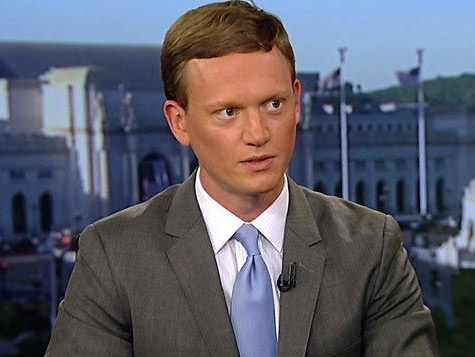There were many rich moments in former National Security Council spokesman Tommy Vietor’s interview Thursday on Fox News’ Special Report with Bret Baier about the Benghazi scandal. Certainly his exasperated protest–“Dude, this was like two years ago”–summarizes the callow nature of the Obama administration (one could almost hear the next Peggy Noonan column being written as the words left the youthful Vietor’s mouth).
Yet there were also interesting moments from a forensic perspective. Vietor disputed the testimony of retired Brig. Gen. Robert Lovell to the House Oversight Committee on Thursday that, in his capacity as chief officer of intelligence for AFRICOM, he knew very soon after the Benghazi assault began that it was a terror attack and not a “demonstration gone awry”–and that the information had been passed up the chain of command.
“Respectfully to the general,” Vietor told Baier, “That’s just not accurate. There’s no way anyone knew definitively the motivations of the attackers that evening.” He added: “I don’t think we know definitively today.”
Though he admitted that the initial claim that there had been demonstrations in Benghazi had been wrong, Vietor stuck to the White House line that it had been legitimate to blame the video for the Benghazi attack.
His source? Not the military, not the Central Intelligence Agency, but the media–specifically, media reports about the motivations of demonstrators who had shown up in anti-U.S. demonstrations in Libya and elsewhere (in their “millions,” Vietor claimed, overshooting just a bit).
“What I’ve seen is, in a number of outlets, reporters talked to people on the scene that night…who said they were there because they were upset about this video.”
When pressed by Baier, Vietor said that the source for the “video” story that the administration relied upon had been “guys quoted in newspapers saying that’s why they were there,” and not the White House itself.
It is not clear whether that is historically even possible. Journalists did not have access to those present during the attack while it was ongoing, and the White House settled on a story about the video while events were still in progress, meaning that it based its reaction on media reports from Cairo and elsewhere, not Benghazi. Vietor may be referring to media reports that quoted witnesses to the Benghazi attack some time after it happened.
Regardless, what is fascinating is that the Obama administration, and loyal alumni like Vietor, are hanging their defense of the White House’s actions and explanations on media reports–not on intelligence available that night. Vietor grew testy, in fact, when asked to describe events. He admitted Obama had not been in the White House Situation Room, for example, but added that he did not have a “tracking device” on the president.
“Did you also change ‘attacks’ to ‘demonstrations’ in the talking points?” Baier asked him. “Maybe. I don’t remember,” Vietor responded. It was two years ago, after all, he added, using the colloquial “dude,” and perhaps reflecting President Obama’s own tendency to regard everything that happened prior to his election or re-election to have been “litigated” by the electorate and absolved by the purifying force of political victory.
It seems never to have occurred to Vietor that Watergate, too, was about a two-year-old event.
Yet while the Obama crew has never known much about history, they do know plenty about how the mainstream media operate.
They knew relying on the media’s own reports as evidence would make it more difficult for journalists to question the accuracy of the “video” story–assuming, of course, they cared.
Which, at the time, they did not.
Image: Fox News Special Report

COMMENTS
Please let us know if you're having issues with commenting.